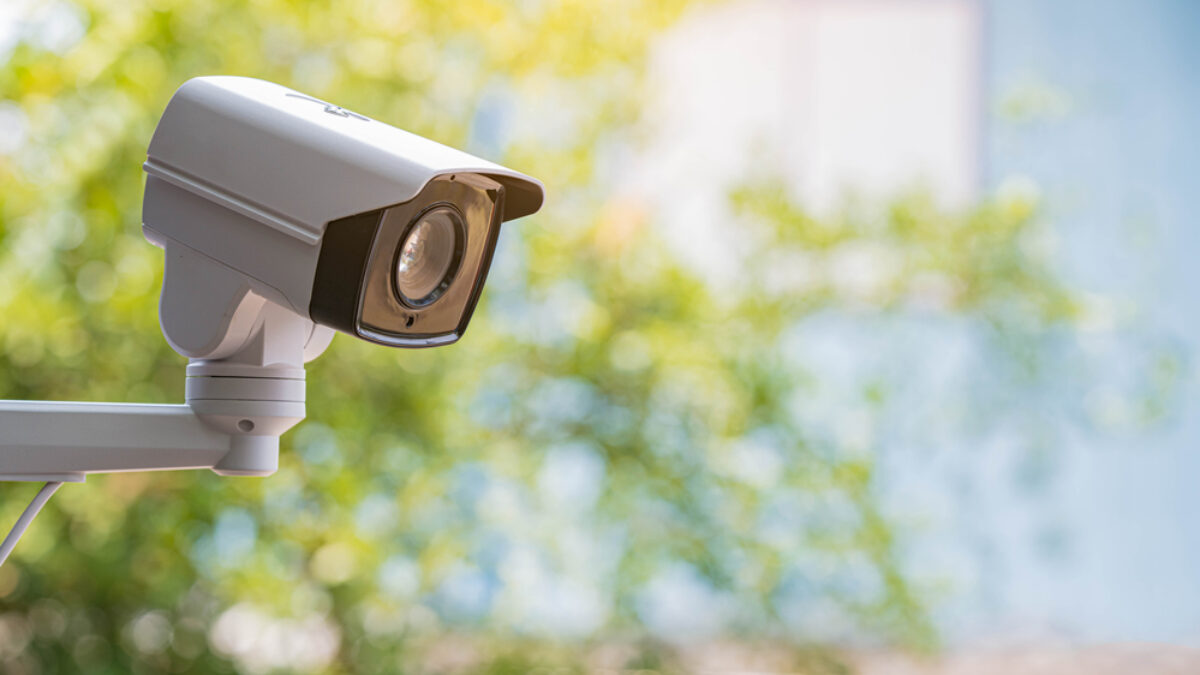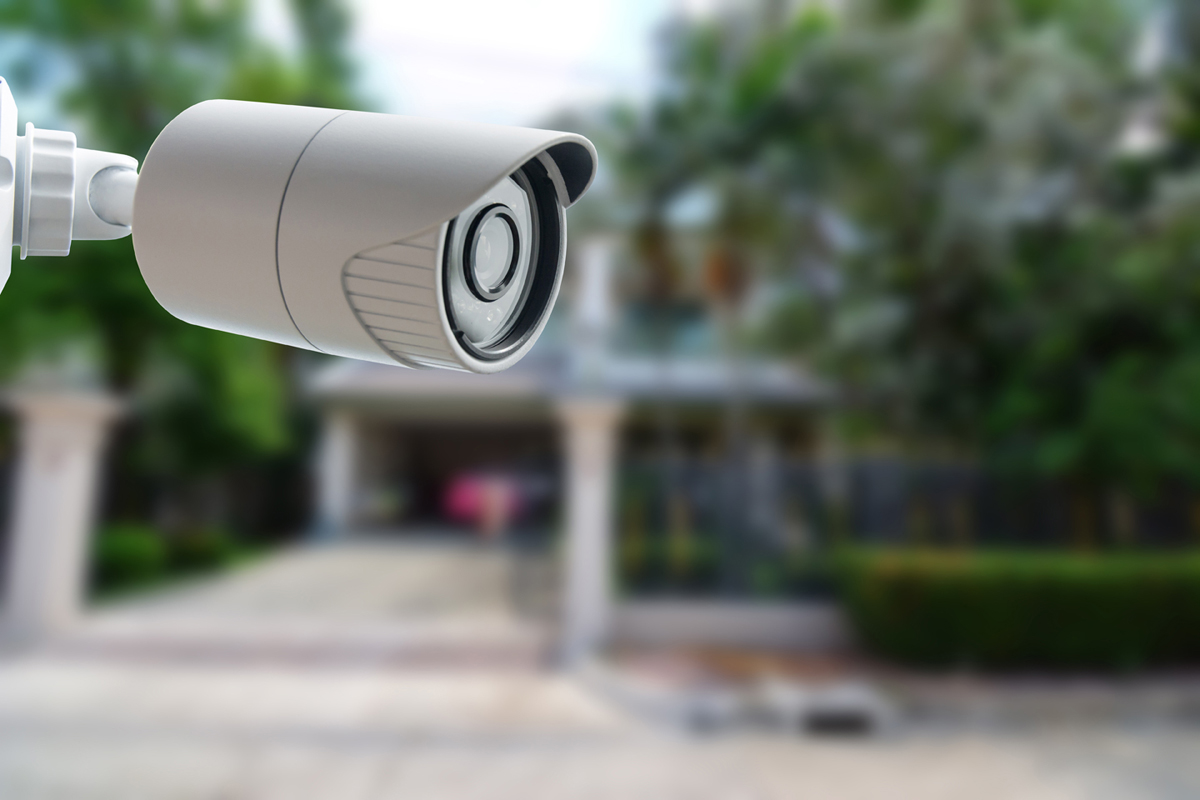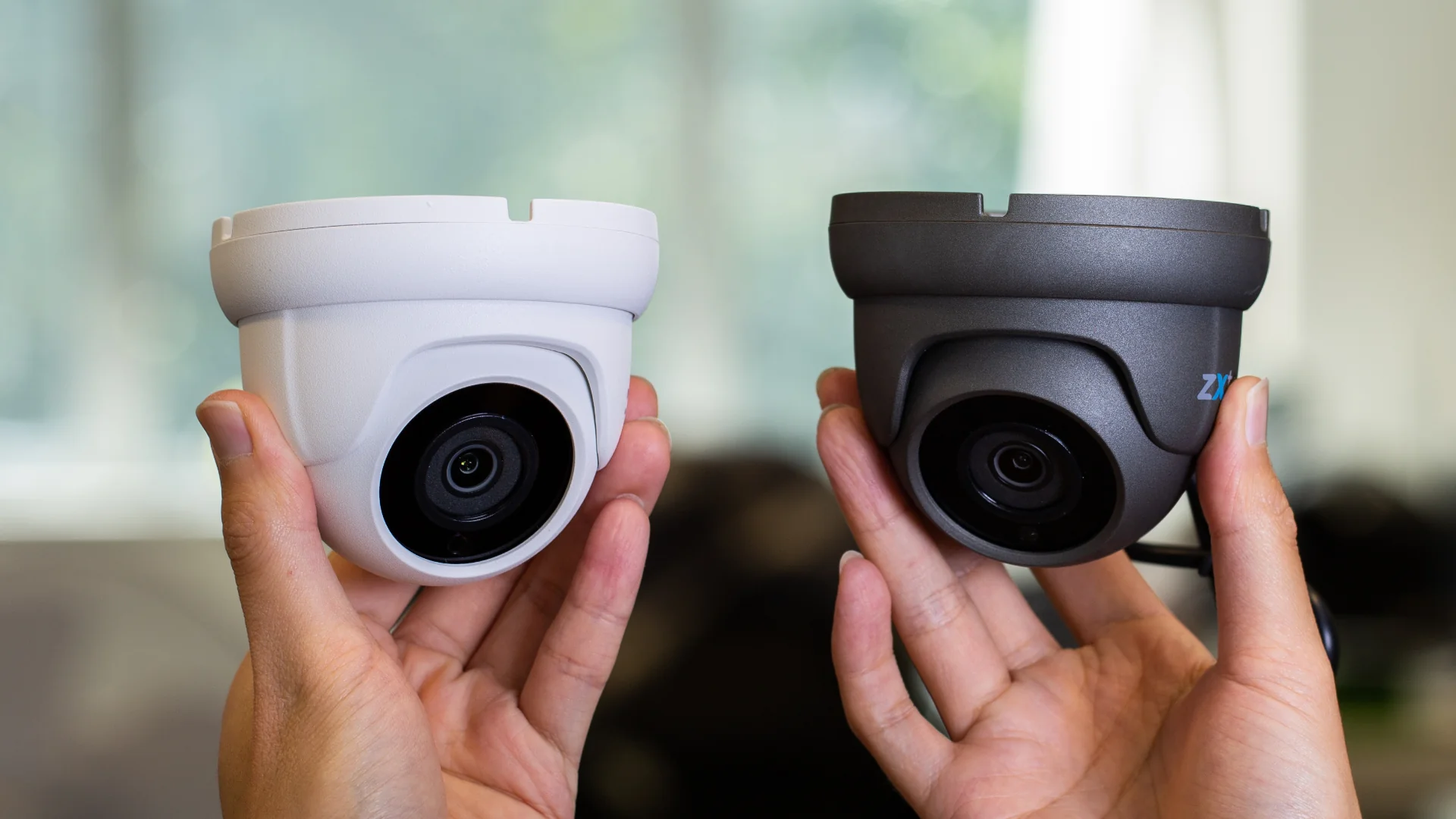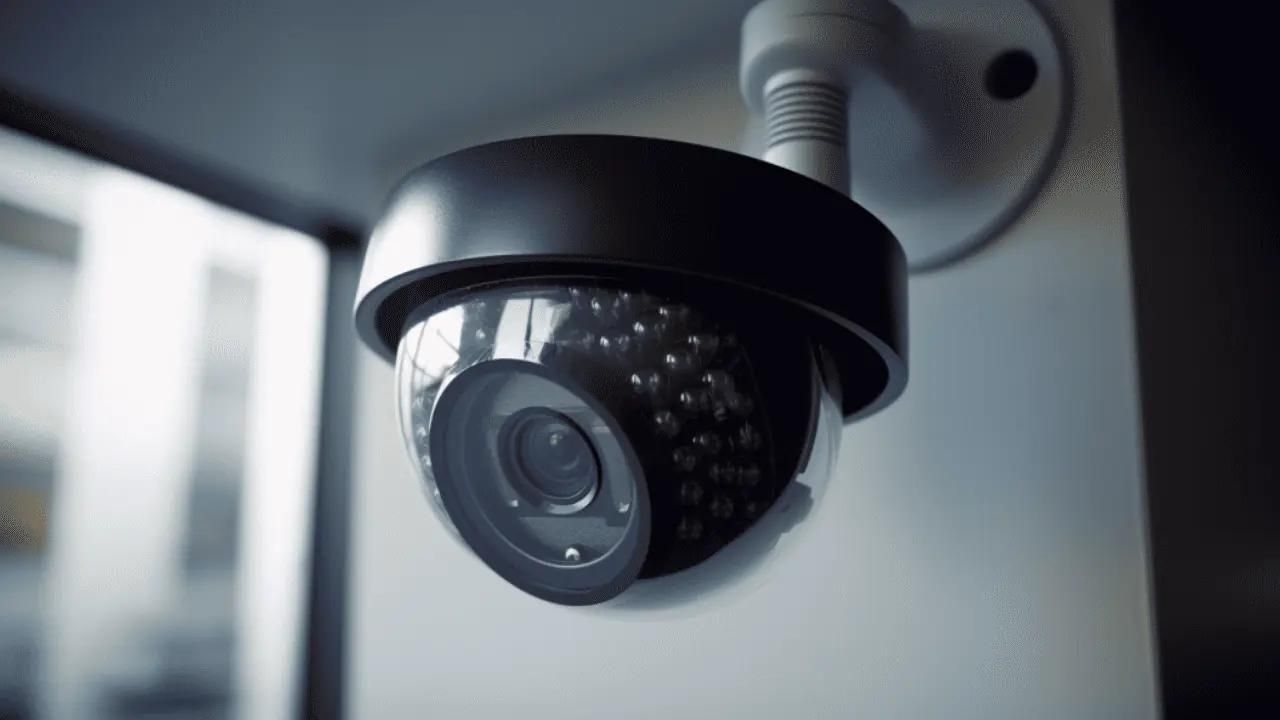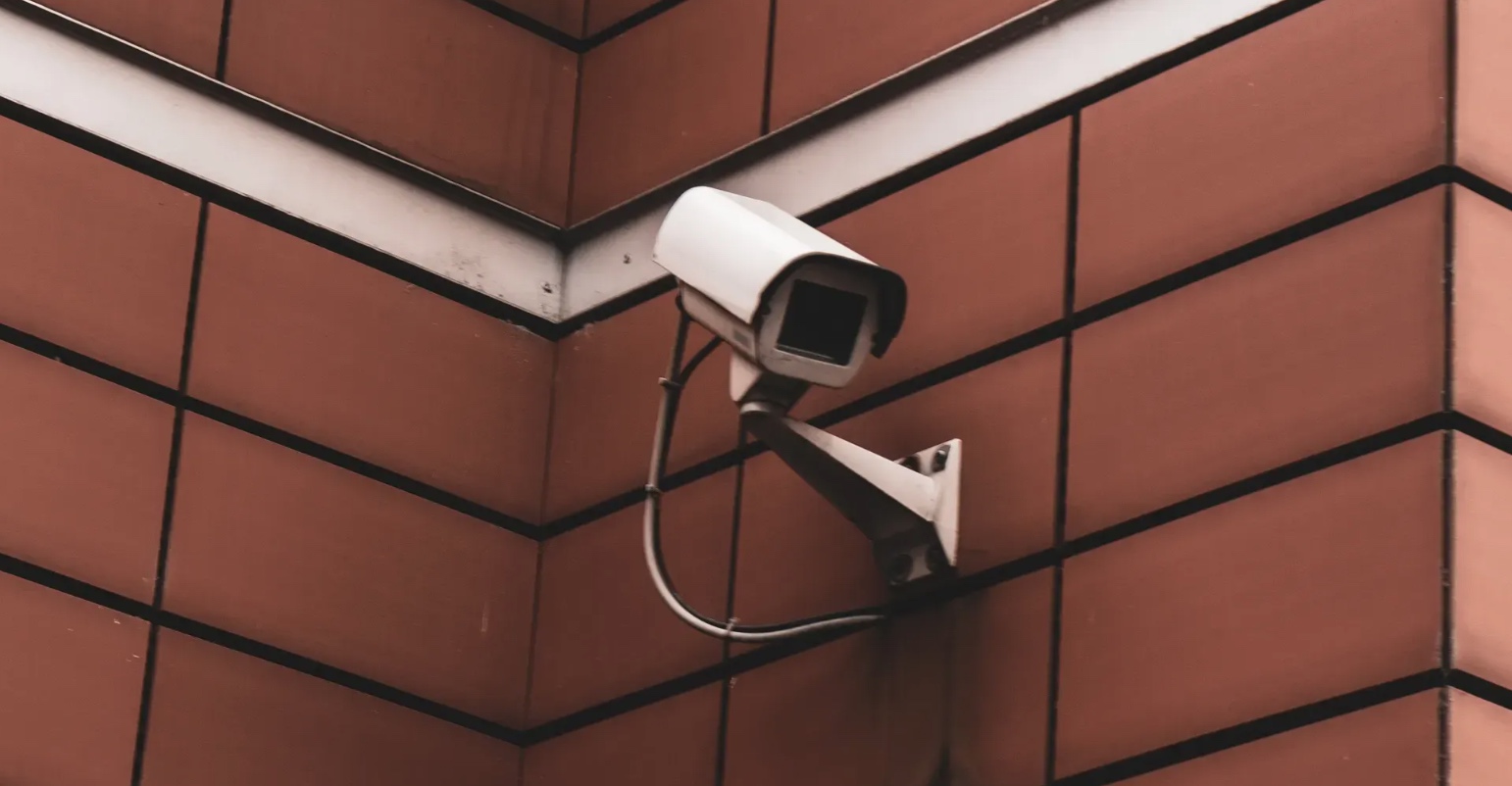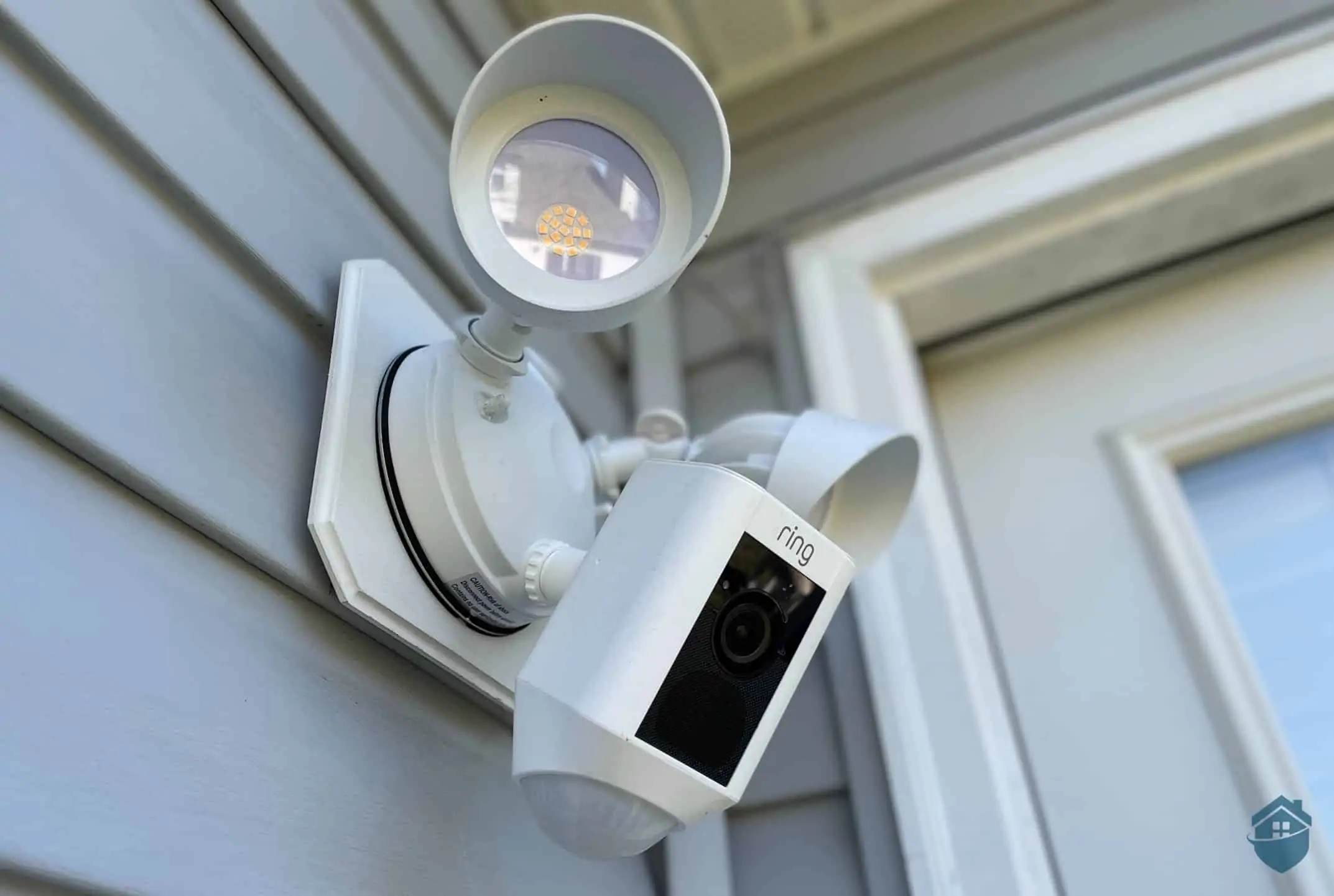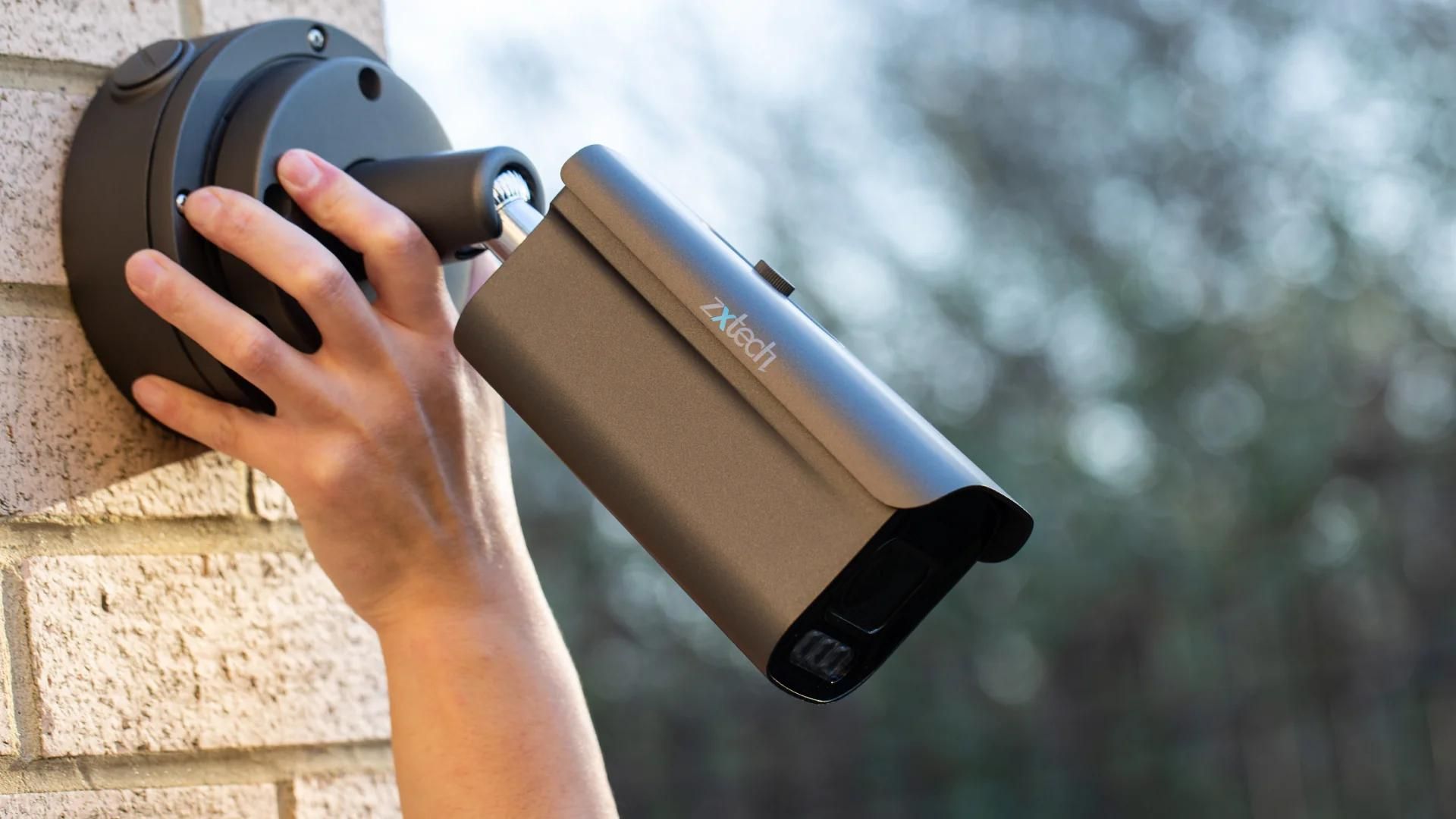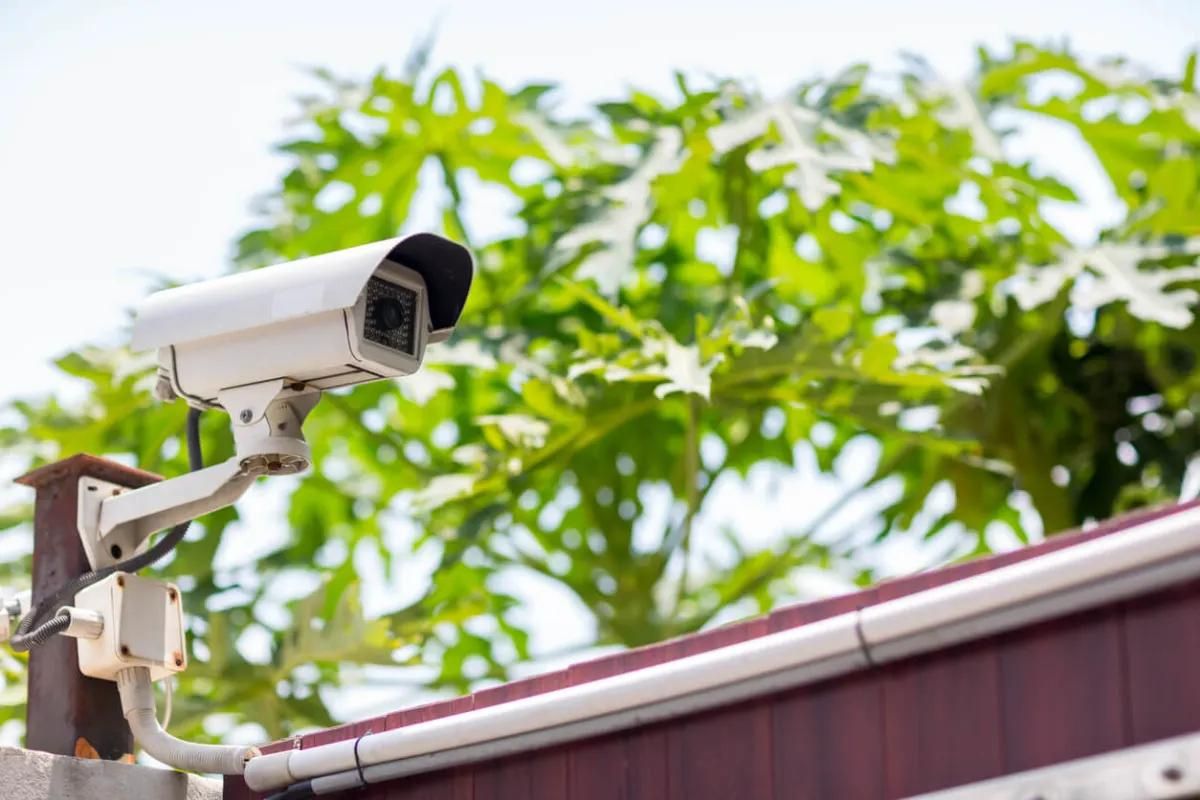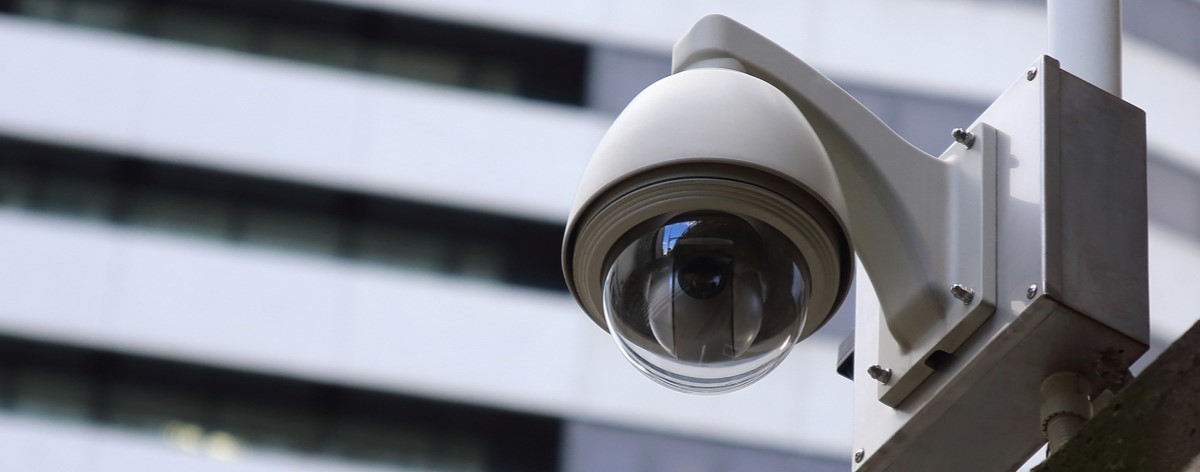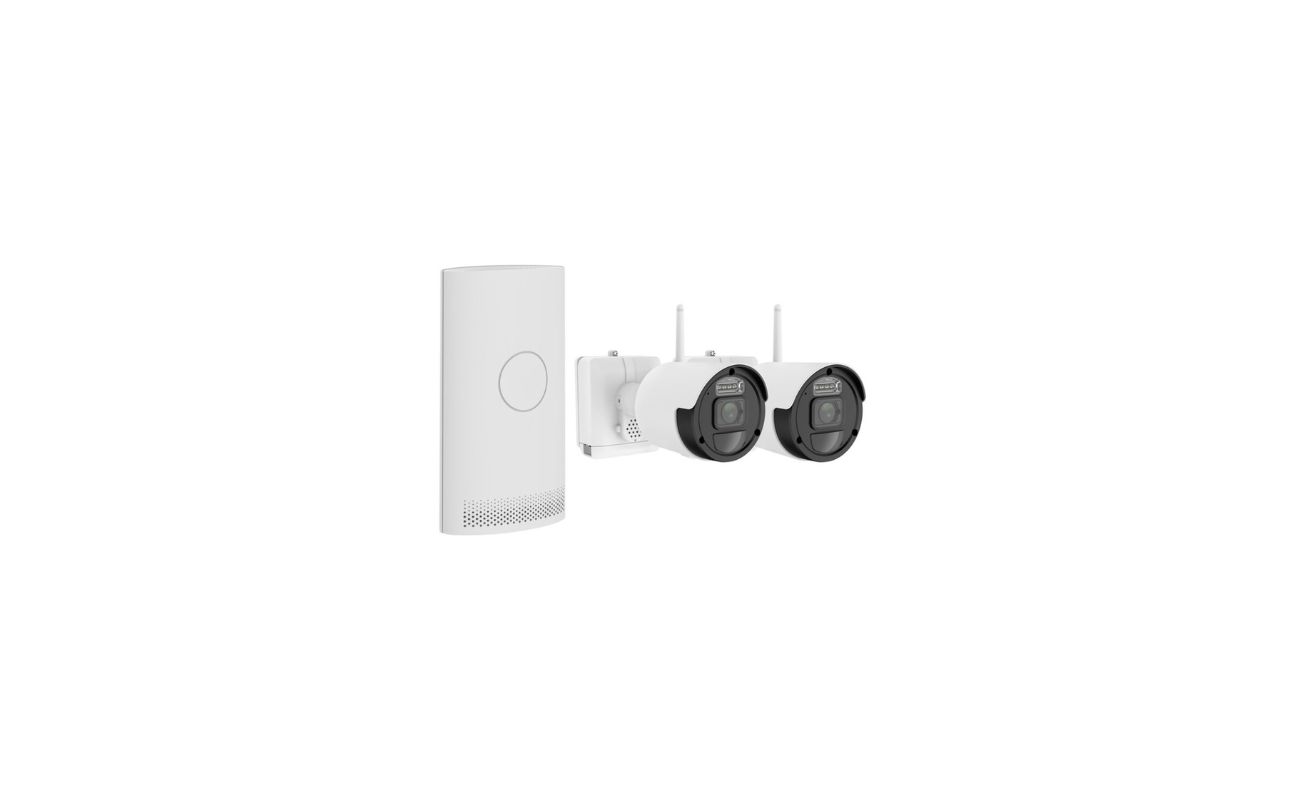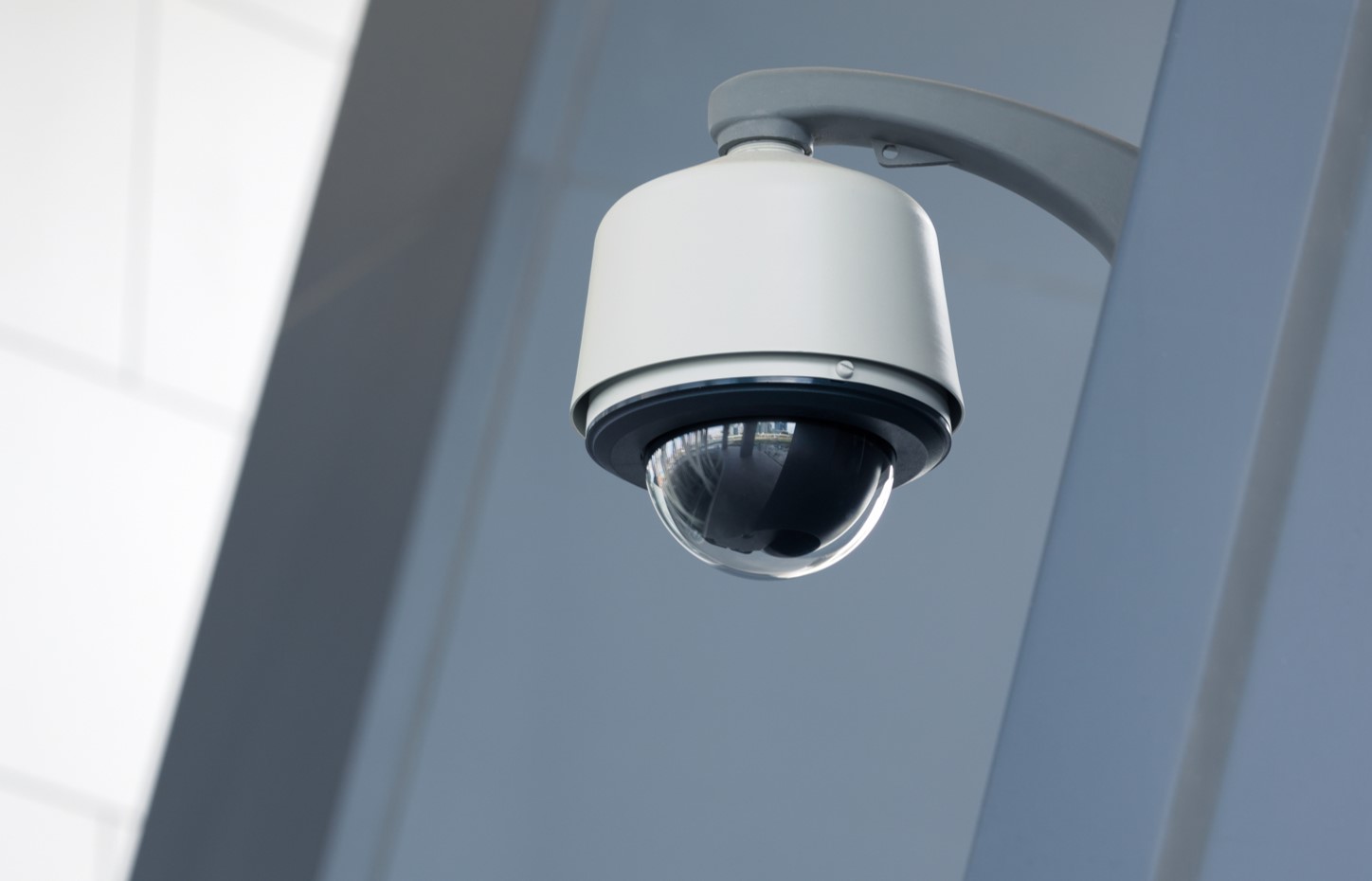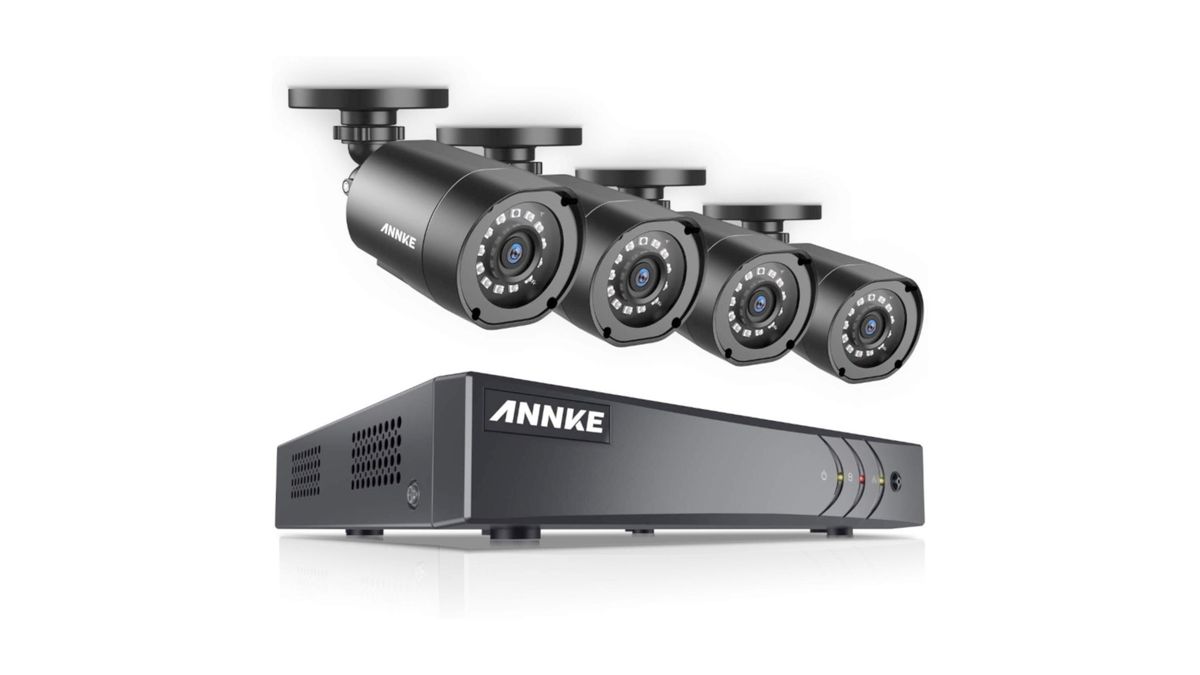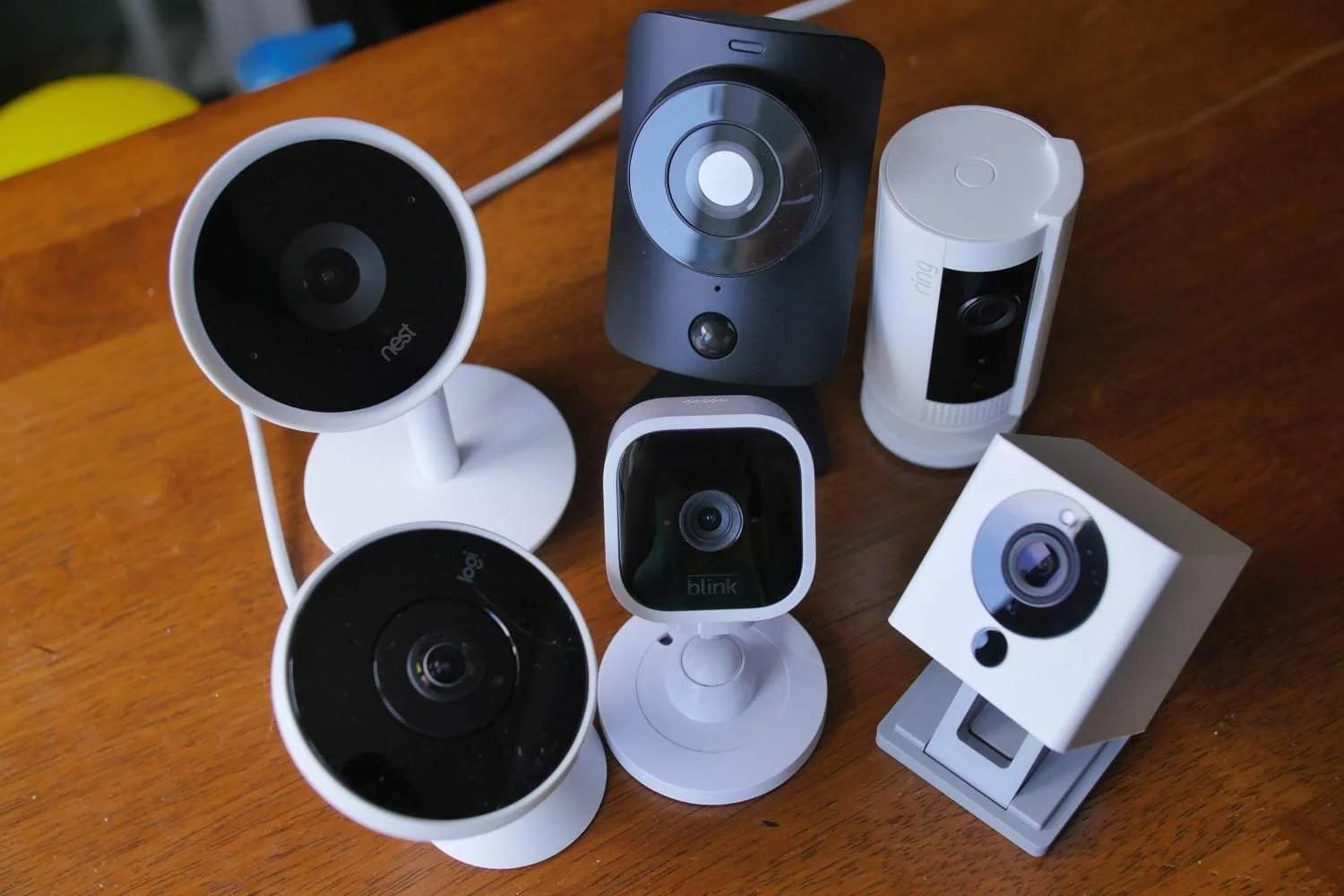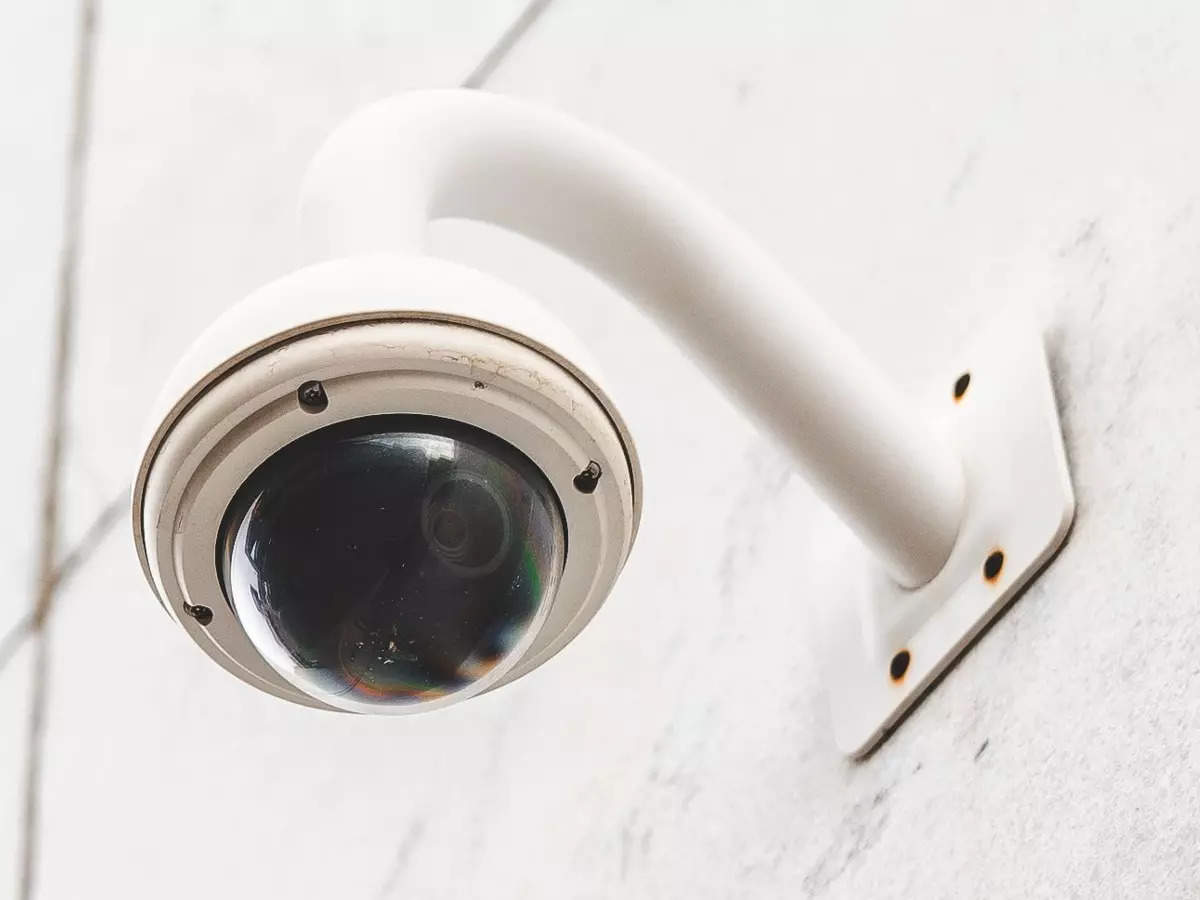Home>Home Security and Surveillance>What Is An NVR Security Camera
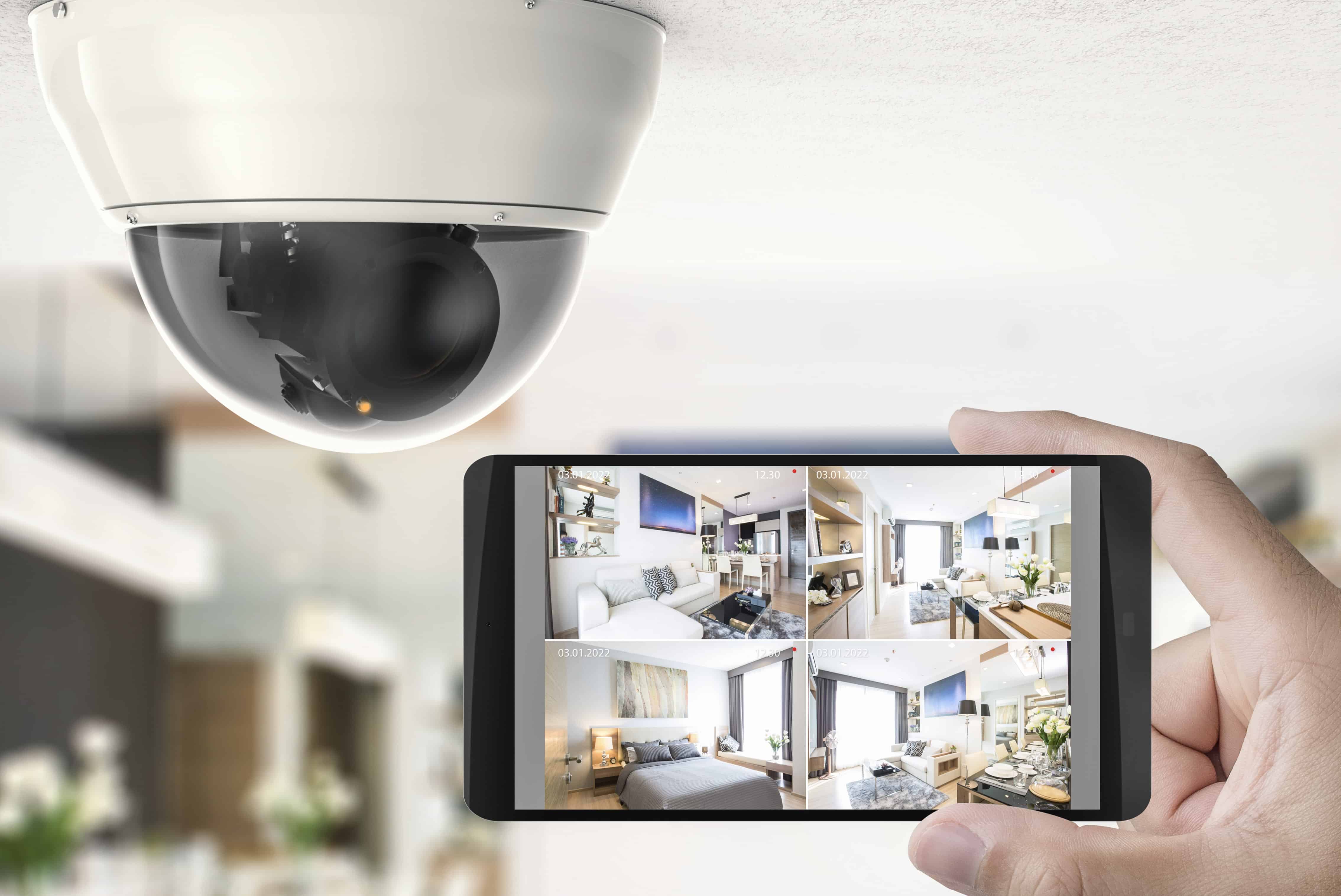

Home Security and Surveillance
What Is An NVR Security Camera
Modified: March 6, 2024
Discover the benefits of NVR security cameras for home security and surveillance. Enhance your peace of mind with advanced video monitoring and recording capabilities.
(Many of the links in this article redirect to a specific reviewed product. Your purchase of these products through affiliate links helps to generate commission for Storables.com, at no extra cost. Learn more)
Introduction
Welcome to the world of home security and surveillance! In today’s fast-paced and ever-changing society, it’s more important than ever to prioritize the safety and protection of your home and loved ones. With advancements in technology, home security systems have become increasingly sophisticated, offering a wide range of features and options to suit every need.
One key component of a comprehensive home security setup is the NVR (Network Video Recorder) security camera. NVR security cameras provide a high-tech solution for monitoring your property, capturing footage, and providing peace of mind.
In this article, we will delve into the world of NVR security cameras, exploring how they work, their benefits, key features to look out for, factors to consider when choosing one, and compare them to DVR systems. We will also explore common applications of NVR security cameras and why they are an essential component of a modern home security system.
So whether you’re a homeowner or a business owner looking to enhance the security of your property, this article will serve as your comprehensive guide to understanding NVR security cameras and how they can help protect what matters most to you.
Key Takeaways:
- NVR security cameras offer high-resolution video, remote accessibility, and motion detection for enhanced home and business security.
- When choosing NVR security cameras, consider factors like camera resolution, storage capacity, and remote access options to meet specific needs and budget.
Read more: What Does Nvr Mean On Security Cameras
Overview of NVR Security Cameras
NVR security cameras are advanced surveillance devices that utilize internet protocol (IP) technology to capture and record high-quality video footage. Unlike traditional analog cameras, NVR cameras convert video data into digital format and transmit it over a network for storage and remote access.
These cameras are typically equipped with high-resolution lenses, infrared night vision capabilities, motion detection sensors, and other advanced features that ensure clear and reliable video monitoring. They are designed to be easy to install, configure, and operate, making them ideal for both residential and commercial applications.
One of the major advantages of NVR security cameras is their ability to connect to a network, allowing users to access live video feeds and recorded footage remotely. Whether you’re at home, in the office, or even on vacation, you can keep an eye on your property through a smartphone, tablet, or computer.
NVR security cameras also offer flexible storage options. They can be integrated with external storage devices such as hard drives or network-attached storage (NAS) systems, allowing for longer retention periods of video recordings. Additionally, some NVR cameras offer cloud storage options, providing an extra layer of security and backup for your valuable footage.
Furthermore, many NVR security cameras are equipped with advanced motion detection technology. This means that they can detect and alert you to any suspicious activity or movement within their field of view. This feature is particularly useful in preventing potential incidents and can help deter criminals from targeting your property.
Overall, NVR security cameras provide a comprehensive surveillance solution that offers high-definition video recording, remote accessibility, and advanced features for enhanced security and peace of mind.
How NVR Security Cameras Work
NVR security cameras leverage advanced technology to capture, record, and transmit video footage. Understanding how these cameras work can help you make informed decisions when choosing the right system for your home or business.
Here’s a step-by-step breakdown of how NVR security cameras operate:
- Capturing Video: NVR cameras use high-resolution lenses and image sensors to capture video footage. These cameras are typically equipped with features such as night vision, wide-angle lenses, and pan-tilt-zoom capabilities for optimal coverage.
- Encoding Video: The captured video is encoded into a digital format using compression algorithms such as H.264 or H.265. This encoding reduces the file size without significant loss of video quality, maximizing storage efficiency.
- Transmitting Video: The encoded video data is transmitted over a network, either through wired Ethernet connections or wirelessly via Wi-Fi. This network connection allows for seamless streaming of live video feeds and remote access to recorded footage.
- Storing Video: NVR security cameras can store video footage locally on an onboard hard drive or external storage device. The capacity of the storage depends on the camera model and the chosen storage option.
- Remote Access: With the NVR camera connected to a network, users can remotely access their surveillance system using a compatible device such as a smartphone, tablet, or computer. This allows them to view live video feeds, playback recorded footage, and manage camera settings from anywhere with an internet connection.
- Video Management Software: NVR security cameras are supported by video management software (VMS) or a dedicated app that provides a user-friendly interface for managing multiple cameras, setting recording schedules, configuring motion detection, and more. This software enables users to have complete control over their surveillance system.
It’s important to note that NVR security cameras require a stable and reliable network connection to ensure smooth video transmission and remote accessibility. A strong and secure network infrastructure is vital to maximize the performance and functionality of your NVR camera system.
Overall, NVR security cameras provide a seamless and efficient way to capture, store, and access high-quality video footage for effective surveillance and peace of mind.
Benefits of Using NVR Security Cameras
NVR security cameras offer a wide range of benefits that make them an excellent choice for enhancing the security of your home or business. Here are some key advantages of using NVR security cameras:
- High-Quality Video: NVR cameras provide high-resolution video capturing capabilities, resulting in clear and detailed footage. This ensures that you can easily identify people, objects, and activities in your surveillance recordings.
- Remote Accessibility: With NVR security cameras, you can access live video feeds and recorded footage remotely through a smartphone, tablet, or computer. This allows you to keep an eye on your property from anywhere, providing peace of mind and the ability to take immediate action if necessary.
- Easy Installation: NVR cameras are designed for easy installation with simplified wiring and setup processes. Whether you choose wired or wireless cameras, the installation is relatively straightforward, making it accessible for both DIY enthusiasts and professional installers.
- Flexible Storage Options: NVR security cameras offer various storage options to suit your needs. They can be integrated with external hard drives, network-attached storage (NAS) systems, or even utilize cloud storage. This flexibility allows you to choose the storage method that best fits your requirements and budget.
- Intelligent Motion Detection: Many NVR cameras come equipped with advanced motion detection technology. This feature enables the camera to detect and alert you to any suspicious activity within its field of view. This proactive approach helps prevent potential incidents and provides an additional layer of security.
- Expandable and Scalable: NVR security camera systems are highly expandable, allowing you to add additional cameras as needed. This scalability ensures that you can easily adapt and upgrade your security system to accommodate changes in your property’s layout or security requirements.
- Integration with Other Devices: NVR cameras can integrate seamlessly with other security devices in your network, such as door sensors, motion detectors, and alarms. This integration enhances the overall effectiveness of your security system and provides a comprehensive approach to safeguarding your property.
- Enhanced Remote Monitoring Features: NVR security cameras often offer advanced features like pan-tilt-zoom (PTZ) capabilities, two-way audio communication, and real-time notifications. These features enable you to have better control and oversight of your property, even when you’re not physically present.
By leveraging the benefits of NVR security cameras, you can enhance the security and monitoring capabilities of your property. Whether it’s your home, office, or business premises, NVR cameras provide peace of mind, flexibility, and efficient surveillance solutions.
Key Features of NVR Security Cameras
NVR security cameras come packed with various features that enhance their functionality and effectiveness in providing reliable surveillance. Understanding these key features can help you make an informed decision when choosing the right NVR camera system for your needs. Here are some essential features to consider:
- High-Resolution Video: Look for NVR cameras that offer high-resolution video capturing capabilities, such as Full HD (1080p) or even 4K Ultra HD. Higher resolution ensures sharper and more detailed footage, allowing for better identification of individuals and objects.
- Night Vision: Opt for NVR security cameras equipped with infrared (IR) LEDs or low-light sensitivity technology to provide clear video footage even in low-light or complete darkness. This feature is crucial for 24/7 surveillance and ensures round-the-clock security.
- Wide-Angle Lens: Cameras with wide-angle lenses provide a broader field of view, allowing you to monitor a larger area without the need for multiple cameras. This feature is particularly useful for covering expansive outdoor spaces or wide indoor areas.
- Motion Detection: NVR cameras with built-in motion detection technology can detect movement within their field of view. Look for cameras that offer adjustable motion sensitivity and the ability to define specific motion zones, reducing false alerts and increasing the relevance of detected events.
- Remote Access and Mobile App: Ensure that the NVR camera system offers remote accessibility through a compatible mobile app or web interface. This allows you to access live video feeds, review recorded footage, and manage camera settings from anywhere with an internet connection.
- Storage Capacity: Consider the storage capacity of the NVR camera system, as it determines the amount of recorded footage that can be stored. Look for cameras that support expandable storage options like external hard drives or network-attached storage (NAS) systems to accommodate your specific needs.
- Cloud Storage Integration: Some NVR cameras offer the option to store footage in the cloud. This provides an additional layer of backup and remote access, ensuring that your valuable recordings are securely stored and accessible even in the event of camera damage or theft.
- Two-Way Audio: NVR cameras equipped with two-way audio capabilities allow you to communicate in real-time with individuals on the camera’s side. This feature is handy for remote visitor interaction, monitoring children or pets, or acting as an additional deterrent for potential intruders.
- Pan-Tilt-Zoom (PTZ) Functionality: If you require the ability to adjust the camera’s field of view remotely, consider cameras with PTZ capabilities. These cameras can pan horizontally, tilt vertically, and zoom in/out, offering enhanced control over surveillance and the ability to focus on specific areas of interest.
- Weather Resistance: If you plan to use NVR cameras outdoors, ensure they are weather-resistant and rated for the environmental conditions in your area. Look for cameras with an IP65 or higher rating to ensure durability and reliable performance in various weather conditions.
By considering these key features, you can narrow down your options and select an NVR security camera system that best meets your specific surveillance needs. Each feature contributes to the overall performance and functionality of the cameras, ensuring reliable and effective video monitoring for your home or business.
When choosing an NVR security camera, make sure to consider the number of channels it supports, the resolution it offers, and whether it has built-in storage or requires a separate hard drive. This will ensure you get the right camera for your needs.
Read more: What Are Security Cameras
Factors to Consider When Choosing NVR Security Cameras
When selecting NVR security cameras for your home or business, it’s essential to consider several factors to ensure that you choose the right system that meets your specific requirements. Here are some key factors to consider:
- Camera Resolution: Determine the level of detail you require in your video footage. Higher resolutions, such as 1080p or 4K Ultra HD, offer sharper and more detailed images, allowing for better identification and analysis of events captured by the cameras.
- Number of Cameras: Assess the total number of cameras you need for your surveillance setup. Consider the size and layout of your property to determine the optimal number of cameras required for comprehensive coverage.
- Camera Placement: Identify the strategic locations for camera placement to maximize coverage and minimize blind spots. Consider factors such as entry points, vulnerable areas, and the distance between cameras and objects of interest.
- Field of View: Evaluate the field of view offered by the cameras to ensure it meets your requirements. Wide-angle lenses are beneficial for monitoring large areas, while adjustable lenses or PTZ (pan-tilt-zoom) capabilities offer flexibility in focusing on specific spots.
- Storage Capacity: Determine the amount of storage required based on your surveillance needs. Consider the number and resolution of cameras, as well as the desired retention period for recorded footage. Ensure the NVR system offers sufficient storage capacity or the option to expand storage through external devices or cloud storage integration.
- Remote Access: Consider the ability to access live video feeds and recorded footage remotely. Ensure the NVR camera system provides intuitive mobile apps or web interfaces that allow you to monitor your property from anywhere using smartphones, tablets, or computers.
- Network Considerations: Assess the network infrastructure in place to support NVR security cameras. Ensure that your network has sufficient bandwidth and stability to handle the video transmission and remote access requirements of the cameras.
- Budget: Set a budget for your NVR camera system, considering the number of cameras, storage capacity, and desired features. Strike a balance between cost and functionality to ensure you get the best value for your investment.
- Integration with Other Systems: Consider the compatibility and integration capabilities of the NVR cameras with other security devices or home automation systems you may already have in place. This allows for a seamless and comprehensive security solution that can be easily managed and monitored from a central interface.
- Quality and Reliability: Research and select reliable and reputable brands known for producing high-quality NVR security cameras. Read reviews, check ratings, and seek recommendations from trusted sources to ensure that you invest in cameras that offer durability, performance, and longevity.
By carefully considering these factors, you can make an informed decision and choose NVR security cameras that align with your specific needs, budget, and preferences. It’s always recommended to consult with professionals or security experts to ensure you select the most suitable surveillance solution for your property.
Comparison between NVR Security Cameras and DVR Systems
When it comes to choosing a video surveillance system, two popular options to consider are NVR (Network Video Recorder) security cameras and DVR (Digital Video Recorder) systems. While they both serve the purpose of capturing and recording video footage, there are some key differences between the two. Here’s a comparison of NVR security cameras and DVR systems:
- Technology: NVR security cameras utilize IP (Internet Protocol) technology to encode, transmit, and record video footage. On the other hand, DVR systems use analog technology to process and store video signals.
- Image Quality: NVR cameras have the edge when it comes to image quality. They can capture and record high-resolution video, often in Full HD or even 4K Ultra HD. In comparison, DVR systems typically offer lower resolution due to their analog technology limitations.
- Camera Connectivity: NVR cameras connect to a network using Ethernet cables or Wi-Fi, allowing for flexible installation and easy remote access. DVR systems, on the other hand, usually require a direct connection to the recording device, which can limit their placement options.
- Flexibility: NVR security cameras offer more flexibility in terms of camera placement and system expansion. With NVR systems, you can add cameras to the network as needed without the limitations of physical connections. DVR systems, however, may require additional wiring and connections to add more cameras.
- Remote Access: NVR cameras excel in remote accessibility. Users can access live video feeds and recorded footage from anywhere using smartphones, tablets, or computers. DVR systems typically require a physical connection to the recording device, limiting remote access options.
- Storage Options: NVR cameras offer a variety of storage options, including onboard storage, external hard drives, or network-attached storage (NAS) devices. They can also integrate with cloud storage services. DVR systems typically use physical hard drives within the recording device, limiting storage capacity and options.
- Upgradeability: NVR camera systems are easily upgradeable. You can add new cameras, upgrade to higher resolutions, or expand storage capacity as needed. Upgrading DVR systems may require replacing the entire system or limited expansion options.
- Cost: NVR security camera systems are generally considered more expensive than DVR systems due to their advanced technology and higher image quality capabilities. However, the cost difference is narrowing as technology evolves.
- Compatibility: NVR cameras are compatible with other IP-based devices, allowing for seamless integration with other security systems or home automation solutions. DVR systems are typically limited to analog devices and may have compatibility restrictions.
- Installation: Both NVR cameras and DVR systems require proper installation, but NVR systems may be slightly more complex due to network configuration and connectivity. DVR systems are generally straightforward to install, requiring the connection of cameras to the recording device.
Ultimately, the choice between NVR security cameras and DVR systems depends on your specific needs, budget, and preferences. NVR cameras are ideal for those seeking higher image quality, remote accessibility, flexibility, and integration capabilities. On the other hand, DVR systems may be suitable for simpler setups, tight budgets, or locations where remote access is not a priority.
Consider your surveillance requirements, desired features, and long-term goals when making a decision, and consult with a security professional to ensure you choose the most suitable option for your property.
Common Applications of NVR Security Cameras
NVR (Network Video Recorder) security cameras have a wide range of applications and can be used in various settings to enhance security, monitor activities, and ensure the safety of people and property. Here are some common applications of NVR security cameras:
- Home Security: NVR security cameras are commonly used for residential security. They provide homeowners with a reliable way to monitor their property, deter theft and vandalism, and enhance overall safety. Whether it’s keeping an eye on the front door, monitoring the backyard, or checking in on children or pets, NVR cameras offer peace of mind and remote access to live video feeds.
- Business Surveillance: NVR security cameras play a vital role in commercial settings, such as retail stores, offices, warehouses, and factories. They help prevent theft, monitor employee activities, ensure safety compliance, and provide evidence in case of accidents or incidents. The ability to access live video feeds and recorded footage remotely is especially beneficial for business owners who need to manage multiple locations.
- Public Spaces: NVR cameras are widely used in public spaces such as parks, parking lots, transportation hubs, and city centers. These cameras help monitor public safety, deter criminal activities, and provide valuable evidence for law enforcement, ensuring the security and well-being of the community.
- Schools and Educational Institutions: NVR security cameras are a crucial component of security systems in schools and educational institutions. They help monitor entrances, hallways, classrooms, and common areas, ensuring the safety of students, staff, and visitors. Additionally, they can assist in managing any security incidents or unauthorized access.
- Healthcare Facilities: NVR cameras are used in healthcare settings, such as hospitals, clinics, and nursing homes, to monitor patient areas, entrances, parking lots, and other critical areas. They help protect patients, staff, and sensitive medical equipment, and can provide evidence in case of security breaches or incidents.
- Construction Sites: Construction sites often have valuable equipment and materials that attract potential theft or vandalism. NVR security cameras help monitor activities on construction sites, ensure worker safety, prevent trespassing, and provide evidence in case of accidents or disputes.
- Industrial Facilities: NVR cameras are deployed in industrial environments, including factories, warehouses, and manufacturing plants, to monitor operations, ensure worker safety, and identify any security threats or unauthorized access to restricted areas.
- Parking Lots and Garages: NVR security cameras are commonly used in parking lots and garages to enhance safety and deter criminal activities. They capture video footage of vehicle movements, monitor parking spaces, and provide evidence in case of vehicle damage or theft.
- Financial Institutions: Banks and financial institutions rely heavily on NVR security cameras to monitor entrances, customer areas, ATM machines, and money handling areas. These cameras help maintain a secure environment, deter criminal activities, and provide evidence in case of fraudulent activities or security breaches.
- Remote Monitoring: NVR security cameras are also used for remote monitoring applications, such as vacation homes, second properties, or areas that require continuous surveillance but are difficult to access regularly. With remote access capabilities, owners can monitor their properties and receive alerts in real-time from anywhere in the world.
These are just a few examples of the many applications of NVR security cameras. The versatility, flexibility, and advanced features of NVR cameras make them a popular choice for various residential, commercial, and public settings where reliable video surveillance is essential.
Conclusion
NVR (Network Video Recorder) security cameras have revolutionized the way we approach home security and surveillance. With their advanced technology, high-resolution video capture, remote accessibility, and extensive features, NVR cameras offer a comprehensive solution for protecting properties and ensuring the safety of individuals.
In this article, we explored the world of NVR security cameras, understanding how they work, their benefits, key features, factors to consider when choosing one, and even compared them to DVR systems. We also discussed common applications of NVR security cameras, showcasing their versatility in various residential, commercial, and public settings.
Whether you’re a homeowner looking to increase the security of your property, a business owner monitoring your premises, or a public institution aiming to ensure the safety of your community, NVR security cameras offer an effective solution. With their high-resolution video, remote accessibility, motion detection capabilities, and integration options, NVR cameras provide enhanced security, deter criminal activities, and provide valuable evidence in case of incidents or disputes.
When selecting NVR security cameras, it’s important to consider factors such as camera resolution, number of cameras, storage capacity, remote access options, and compatibility with other systems. By carefully evaluating your specific needs and preferences, you can choose the right NVR camera system that aligns with your requirements and budget.
Remember to invest in reliable and reputable brands known for their quality NVR security cameras. Reading reviews and seeking recommendations can help ensure that you select cameras that offer durability, performance, and long-term reliability.
From enhancing home security to monitoring business operations and maintaining public safety, NVR security cameras have become an essential component of modern surveillance systems. With their advanced features, ease of use, and remote access capabilities, NVR cameras provide peace of mind and real-time monitoring, allowing you to protect what matters most to you.
So take the next step in securing your property and invest in an NVR security camera system that meets your needs. Experience the benefits of high-resolution video, remote accessibility, and advanced surveillance features, knowing that you have taken an important step towards a safer and more secure environment.
Frequently Asked Questions about What Is An NVR Security Camera
Was this page helpful?
At Storables.com, we guarantee accurate and reliable information. Our content, validated by Expert Board Contributors, is crafted following stringent Editorial Policies. We're committed to providing you with well-researched, expert-backed insights for all your informational needs.
